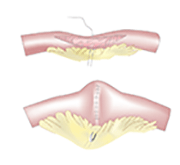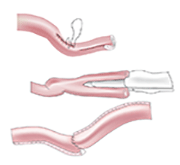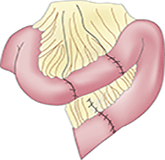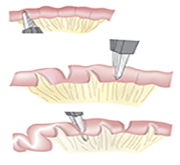For people with intestinal failure, the experts at UPMC's Gastrointestinal Rehabilitation and Transplant Program offer an array of medical and surgical options.
Our main goal is to help you manage your intestinal disorder and improve your quality of life.
Medical Treatments for Short Bowel Syndrome and Intestinal Disorders
Medicines are available to help the intestine improve its function.
Used in combination with diet modification, surgery, and novel therapies, these medicines slow down the digestive tract to ensure proper nutrient absorption.
Surgery for Short Bowel Syndrome and Intestinal Failure
At the Gastrointestinal Rehabilitation and Transplant Program, we offer various surgical techniques — tailored to your individual needs — for managing short bowel syndrome without the need for intestinal transplant.
Strictureplasty: A surgical procedure performed in response to scar tissue that has built up in the intestinal wall from inflammatory bowel conditions.

Intestinal tapering and lengthening: Procedures that both lengthen and taper the short bowel, thus making it more efficient at absorbing nutrients from food.

Reversed intestinal segment: A procedure slowing motility of the small intestine by surgically removing a little section of the small intestine, rotating it, and reattaching it.

Serial transverse enteroplasty procedure (STEP): A procedure in which the bowel is stapled into v-shapes on alternating sides, decreasing its width and increasing its length.

If the length of your remaining bowel is extremely short, or your intestinal disease is associated with liver failure, you may not qualify as a candidate for intestinal rehabilitation.
Fortunately, at the Gastrointestinal Rehabilitation and Transplant Program we have a team of world renowned transplant surgeons that will provide a personalized treatment for you.






















